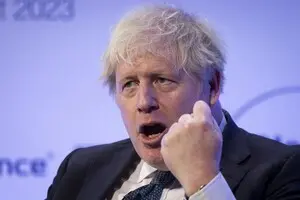Modi’s Vision for a Developed India by 2047 Unveiled at HT Leadership Summit
In a compelling address at the 22nd Hindustan Times Leadership Summit in New Delhi, Prime Minister Narendra Modi shared his ambitious vision of transforming India into a developed nation by 2047. Emphasizing the need for public trust in governance and a cultural shift among citizens, he outlined a strategic roadmap focusing on welfare benefits, job creation, and overall national progress.
Unveiling the Vision
On November 16, during the summit commemorating Hindustan Times’ centenary—founded by Mahatma Gandhi in 1924—Modi elaborated on the National Democratic Alliance (NDA) government’s achievements since he took office. He highlighted the administration’s commitment to delivering public goods while steering clear of divisive politics, asserting that the ultimate goal is to achieve developed country status by India’s 100th independence anniversary on August 15, 2047.
"The journey from our freedom struggle to the aspirations post-independence is extraordinary and wonderful. The ordinary citizen has shown India the way forward," Modi said, urging the populace to reject mediocrity and strive for world-class standards.
The Mantra of Progress
Modi articulated a manifesto encapsulated in the phrase: "investment for employment, development to dignity.” He remarkably discussed various government initiatives designed to enhance quality of life, including:
- Infrastructure Development: Record spending on public infrastructure aims to eliminate inefficiencies, with the Union budget increasing from ₹16 lakh crore in 2014 to ₹48 lakh crore today.
-
Social Welfare Programs: Initiatives such as the Ayushman Bharat scheme for healthcare and the Jan Aushadi scheme for affordable medicines have saved billions for citizens. For instance:
- Savings of ₹1.1 lakh crore through free healthcare.
- ₹30,000 crore saved on subsidized medicines.
- Economic Empowerment Initiatives: Programs aimed at providing LPG access saw growth from 140 million to 300 million cylinders from 2014 to 2024. Modernization initiatives also include the proliferation of mobile technology and digital transactions, where even vendors can engage in cashless commerce using UPI.
Building Confidence through Action
Critically, Modi discussed the importance of fostering a culture of risk-taking, which he claims was essential for India’s growth. Noting historical commerce routes that once made India a global market leader, Modi underscored the government’s role in restoring citizen trust, which he observed had eroded in the past due to inefficiencies.
“Public confidence and self-confidence must rise for true national development. Our aim is the progress of the people, by the people, and for the people,” he remarked, underscoring a participatory governance framework.
In an illustration of government impact, Modi shared success stories, including that of a woman who bought a tractor, showcasing how economic empowerment enables individual growth and spurts broader community development.
The Path to Global Standards
While celebrating the progress made, Modi stressed the necessity for continuous improvement across all sectors, advocating for nothing short of excellence. “In every sector, we must strive to be the best. This has to be relentlessly maintained among the public," he stated, calling attention to the media’s role in maintaining the discourse around quality and standards.
Modi’s roadmap reflects his administration’s focus on structural transformation, ensuring that India not only aspires but actively works toward its potential as a global power.
Engaging the Public
With a call for a united effort, Modi implored both the government and citizens to invest hard work in realizing India’s full potential. The vibrant campaign for empowerment and function on all societal levels is framed as critical for India’s future.
As the nation strides toward its centenary of independence, this vision compels citizens and industries alike to engage in the transformative journey. How do you see the government’s plans impacting your life or business? Join the conversation and share your thoughts in the comments below!
For further insights and updates on national governance and progressive policies, explore more articles on our website.


